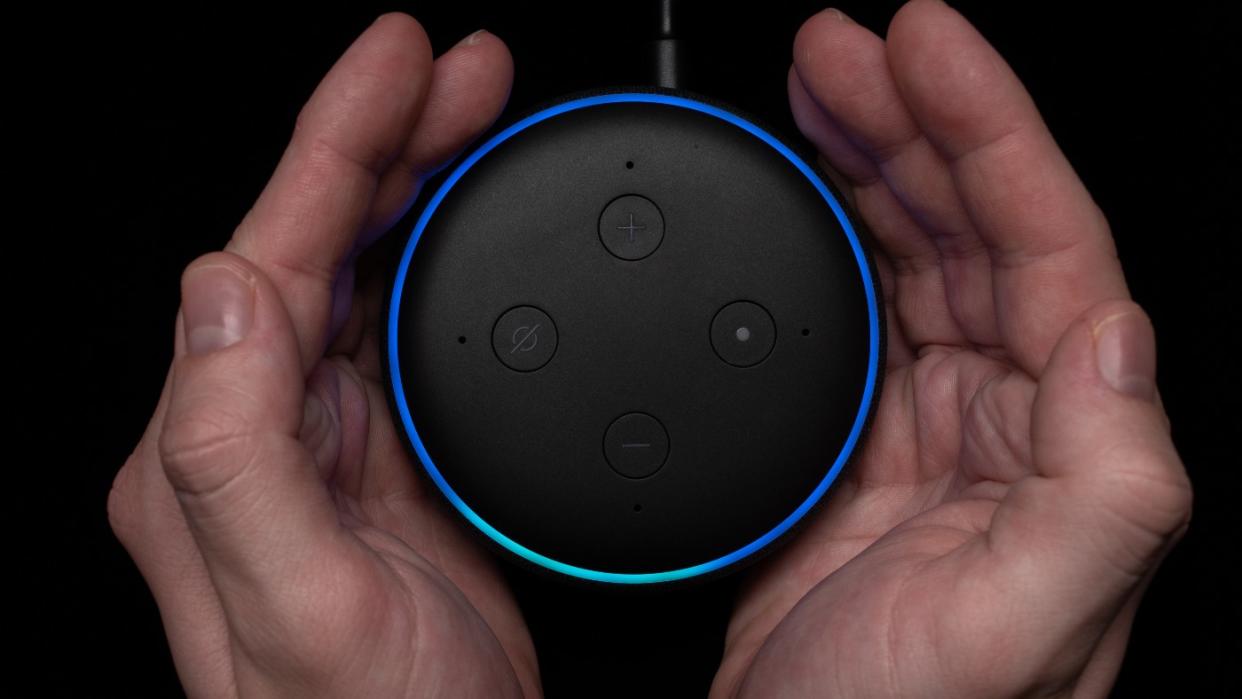Alexa? How much do you know about me?

Smart devices in our homes are potentially sharing vast amounts of personal data with social media and marketing companies, new research suggests.
Devices such as smart speakers, doorbells, TVs, security cameras, and even washing machines, are collecting "far more data than is needed for the product to function", consumer group Which? said. It assessed the "data collection practices of major brands" that sell smart devices and found that all of them requested data through their apps that was "arguably" not "necessary". It added that some of those brands wanted to track your location even "when you aren't using the app".
While there is little consumers can do to take "full control" of their data, there are small changes they could make to "shore things up", Which? said. It also added that the need to "improve transparency" of companies collecting data was "long overdue".
Which companies are involved and what are they collecting?
The research looked at a wide range of popular brands providing different kinds of smart devices, but "every brand" required "exact location data as well as an approximate one", said The Guardian.
Among those named in the research are doorbell and camera brands such as Ring (owned by Amazon), Google Nest and Ezviz, smart speaker brands including Bose, Amazon Echo and Apple HomePod, TV manufacturers Samsung, LG and Sony, as well as washing machine brands Miele, Samsung, LG and Hoover. In some instances, the data collected by these devices was being passed on to the likes of TikTok and Meta, the owner of Facebook and Instagram, as well as Amazon and Google.
Ezviz was "found to be particularly hungry" for data, said Sky News, requiring information including name, email, precise location, and in some cases phone number and contacts. It was found to be sharing data with "Google; Meta; Chinese phone maker Huawei; and TikTok's own business marketing unit called Pangle".
Smart washing machines are also collecting data that has "nothing to do with spin cycles", wrote Richard Currie at The Register, pointing out that the likes of LG and Hoover "don't allow use of their apps without knowing how old you are". And though smart TVs don't normally require an app, they do "track user behaviour" in order to "flood their menus with ads". LG, Samsung and Sony have been "put on blast”, Currie added, given they require users to accept all tracking automatically, or decline each one manually.
How can users protect their data?
Data collection "must be relevant and only necessary" under data protection laws, said The Times, but the justifications for requesting information are "often too broad for consumers to appreciate" and privacy policies are "often long and confusing”. The Commons Culture, Media and Sport Committee has previously requested the government "standardise privacy interfaces for connected devices to rectify this problem", the paper said.
And though collecting data "isn't inherently a bad thing”, said Which?, there are some steps consumers can take to restrict what is collected. That includes opting out of requests you are not "comfortable with" during set-up, as well as reviewing app permissions, phone settings, and requesting that recordings by systems like Alexa are deleted. It did warn, however, that turning off some settings "might stop or limit some of the app's functions".
Is Alexa really listening?
A majority of people surveyed believe that "smart home devices listen to you when you aren't aware", said PCMag in its own US survey in 2020. Smart assistants like Alexa and Google Assistant are meant "to listen only when triggered by a wake word or other voice command", but this has not "always been the case".
Amazon says that its Alexa devices do not record or store voice recordings unless "they are specifically activated”, but there is a "strong possibility that your Alexa is activating accidentally", wrote Carley Lerner in Reader's Digest. The more the device is used the better its detection will get, and if it is functioning correctly "there is no evidence to believe Alexa is always recording", she added.
But Amazon does employ "hundreds of people to read and annotate the transcripts" of voice recordings to improve the Alexa service, it says, adding that it also does not tie any personal information to the transcripts. Though it is possible to opt out of these recordings being stored and read, everyone should be "aware of the reduced privacy that we are accepting" when installing a smart speaker.

